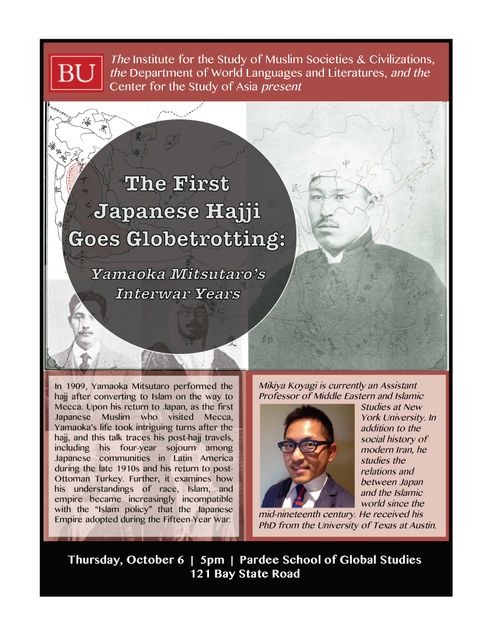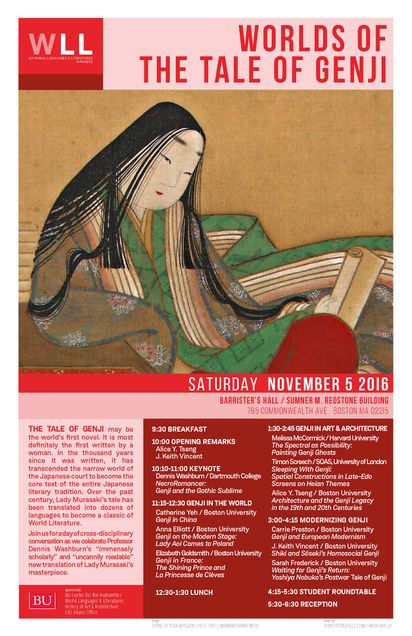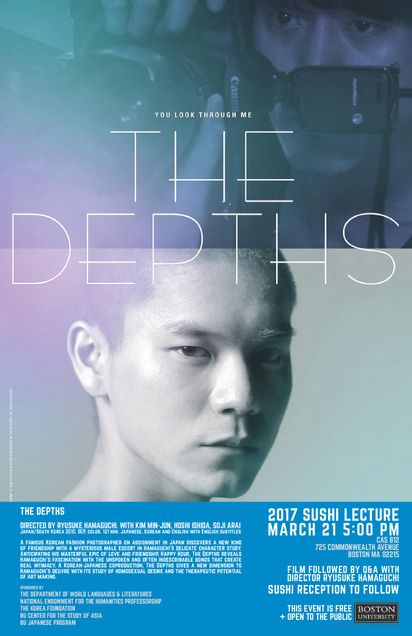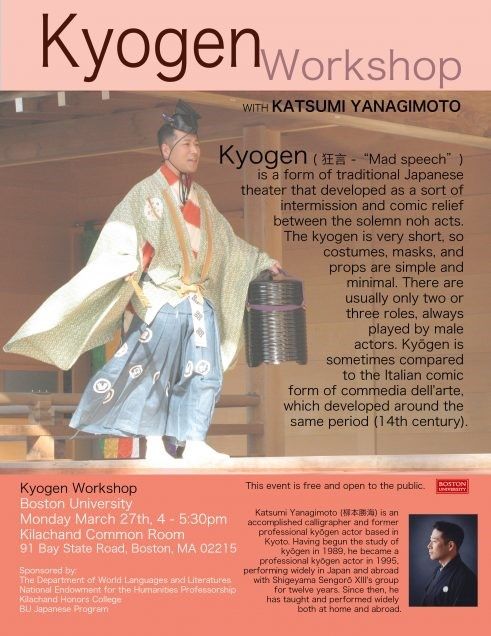2017-2018
10/12 Haiku as World Literature Symposium: Celebrating Masaoka Shiki's 150th Birthday
Haiku is perhaps the best travelled of all world literary genres. Since the seventeenth century, when Matsuo Bashō wrote his masterpiece, The Narrow Road to the Deep North, haiku poets have embarked on countless figural and literal journeys, and they have taken the genre with them. By the eighteenth and nineteenth centuries, dense social networks of haiku poets crisscrossed the whole of Japan, and by the early twentieth century, haiku in its modern form had spread across the globe through the work of poets including Ezra Pound, Rabindrath Tagore, Frederico Garcia Lorca, and Yu Ping Bo. Today millions of people write haiku in Japanese and dozens of other languages.
This symposium marks the 150th anniversary of the birth of the haiku poet Masaoka Shiki (1867-1902). Despite spending the last seven years of his life immobilized by tuberculosis, Shiki contributed more than any other poet to the genre’s emergence as a globe-trotting literary form. Scholars and poets working on haiku in Japanese, English, Persian, Chinese, and Spanish will share their work on Shiki and on the poetics of haiku in its global dimensions.
Click here for more information.
Dr. Akiko Mizoguchi
“Boys Love” (BL) is a popular genre of Japanese graphic novels depicting romantic relationships among attractive young men and most widely popular among young women. Dr. Mizoguchi is a major scholar of this genre and has published a cutting-edge book in Japanese, A Theory Evolution of Boys Love, which she will also be publishing in English in the future. This will be a great opportunity for students to hear about this fascinating genre and ask questions about her research.

Thursday, November 2nd
CAS 208 1:30-2:30
2016-2017
10/6: The First Japanese Hajji Goes Globetrotting. A Talk with Mikiya Koyagi
In 1909, Yamaoka Mitsutaro performed the hajj after converting to Islam on the way to Mecca. Upon his return to Japan, as the first Japanese Muslim who visited Mecca, he gave lectures and wrote about various interrelated topics ranging from pan-Islamism, racial unity, and the future of the Japanese Empire. Historians have mentioned Yamaoka in the context of the emerging ties between Muslim activists and Japanese pan-Asianists immediately after the Russo-Japanese War, but his life after 1909 has not been examined. Yamaoka’s life took intriguing turns after the hajj, and this talk traces his post-hajj travels, including his four-year sojourn among Japanese communities in Latin America during the late 1910s and his return to post-Ottoman Turkey. Further, it examines how his understandings of race, Islam, and empire became increasingly incompatible with the “Islam policy” that the Japanese Empire adopted during the Fifteen-Year War.

11/2. Geddes Film Screening of The Lady Shogun and her Men.
(Wo)Men Who Dare: Fall 2016 GEDDES JAPANESE MOVIE SERIES
Screenings Every Other Wednesday at 6:30pm
(All films with English subtitles)
– The Lady Shogun and Her Men 大奥 (2010) 116 min.
In 1716, a deadly disease kills only men in Japan, reducing males to ¼ the population of women, so women take on traditional male roles, including hard labor, managing businesses and running government while men are pampered, protected and allowed only to indulge in light entertainment. Based on an award winning manga by Fumi Yoshinaga. Director: Kaneko, Fuminori
Introduced by Sarah Frederick, Department of World Languages and Literatures
Presented by the Department of World Languages and Literatures, Boston University Center for the Study of Asia and the Geddes Language Center. For further information, please contact hmiyagi@bu.edu (Hiromi Miyagi-Lusthaus).
11/5. Worlds of the Tale of Genji Symposium
Please join BU faculty from WLL, Art History, and Romance Studies for an interdisciplinary symposium celebrating a new translation of on the world’s first novel written by a woman: Lady Murasaki’s 11th century Tale of Genji. The day will begin with a keynote by the translator, Professor Dennis Washburn, and will include guest talks by art historians Melissa McCormick (Harvard) and Timon Screech of (SOAS, University of London), as well as a panel of BU and Harvard students currently reading the Washburn translation.

3/21. The Depths Film Screening and Sushi Lecture
Film followed by Q&A with Director Ryusuke Hamaguchi. Sushi Reception to Follow. Free and open to the public.
A famous Korean fashion photographer on assignment in Japan discovers a new kind of friendship with a mysterious male escort in Hamaguchi’s delicate character study. Anticipating his masterful epic of love and friendship, Happy Hour, The Depths reveals Hamaguchi’s fascination with the unspoken and often indescribable bonds that create real intimacy. A Korean-Japanese coproduction, The Depths gives a new dimension to Hamaguchi’s oeuvre with its study of homosexual desire and the therapeutic potential of art making.
Directed by Ryusuke Hamaguchi. With Kim Min-Jun, Hoshi Ishida, Soji Arai
Japan/South Korea 2010, DCP , color, 121 min. Japanese, Korean and English with English subtitles
Sponsored by:
The Department of world Languages & Literatures
National Endowment for the Humanities Professorship
The Korea Foundation
BU Center for the Study of Asia
BU Japanese Program

3/27 Kyogen Workshop
